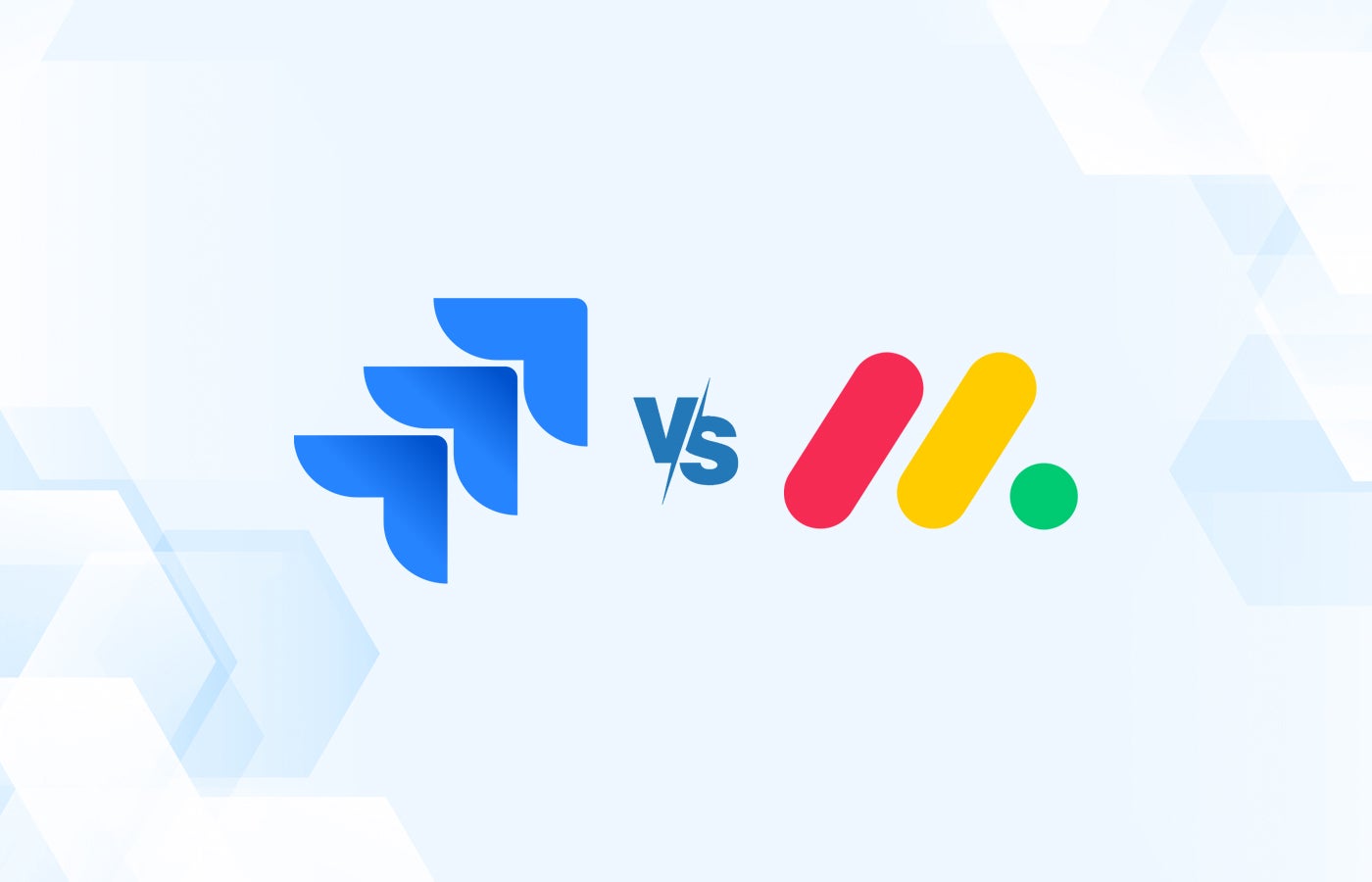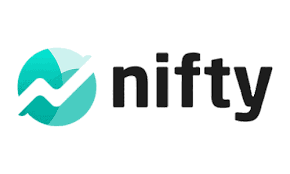Both monday.com and Jira are highly reviewed project management software platforms that offer pretty similar features. However, once you start to dig deeper into each software platform, the differences become more apparent.
To help you decide between monday.com and Jira, I break down their pricing plans, features, pros and cons in this in-depth review.
Featured Partners
monday.com vs. Jira: Comparison
| Project views | ||
| Workload management | ||
| Automations | ||
| Security add-on | ||
| Forever free plan | ||
| Starting price (billed annually) | ||
monday.com vs. Jira: Pricing
Both monday.com and Jira have very similar pricing structures, including annual and monthly billing options, though the costs vary slightly between them. They both offer a free trial as well as a forever free plan for very small teams. Jira also offers volume discounts for companies with more than 100 employees. Use the calculator on the website to figure out if your company qualifies for the discount.
monday.com pricing
- Individual: Free forever for up to two seats.
- Basic: $9 per seat per month billed annually, or $12 per seat per month billed monthly.
- Standard: $12 per seat per month billed annually, or $14 per seat per month billed monthly.
- Pro: $19 per seat per month billed annually, or $24 per seat per month billed monthly.
- Enterprise: Pricing available upon request.
Read the full monday.com review for more information.
Jira pricing
- Free: $0 for up to 10 users.
- Standard: $8.15 per user per month billed monthly, or $850 annually for 1–10 users.
- Premium: $16 per user per month billed monthly, or $1,600 annually for 1–10 users.
- Enterprise: Starts at $141,000 a year for 800+ users. Only available for companies with more than 800 employees. Annual billing only.
Read the full Jira review for more information.
Feature comparison: monday.com vs. Jira
Project views and templates
monday.com offers more than 10 project views to choose from, including table, calendar, board (kanban), and Gantt charts. Meanwhile, Jira offers six project views: list, calendar, board, timeline, summary, and backlog. While monday.com offers more project views to choose from than Jira, the designs are less complex, so I’d recommend them for simpler projects. Jira templates are more well-suited to specific project management methodologies like scrum and lean.
Both monday.com and Jira also offer template libraries, which meant that I didn’t have to build new projects from scratch. The templates are sorted into easy-to-browse categories such as project management, marketing, sales, and operations. Jira does offer more templates for software development than monday does.
Resource management
Both monday.com and Jira provide numerous features to support resource management. On each platform, tasks can be ranked by priority by using a status column. I was also able to add a time estimation for each task, then later compare it to the actual time tracked to see how accurate your estimates were.
monday.com also offers a Workload view that allows managers to see each team member’s capacity at a glance so they can evenly distribute tasks. This view can also be used to allocate physical resources like meeting rooms and equipment. Jira does not offer an equivalent view, so you’ll need to seek out a third-party app on the Atlassian marketplace if you want to add this functionality to Jira.
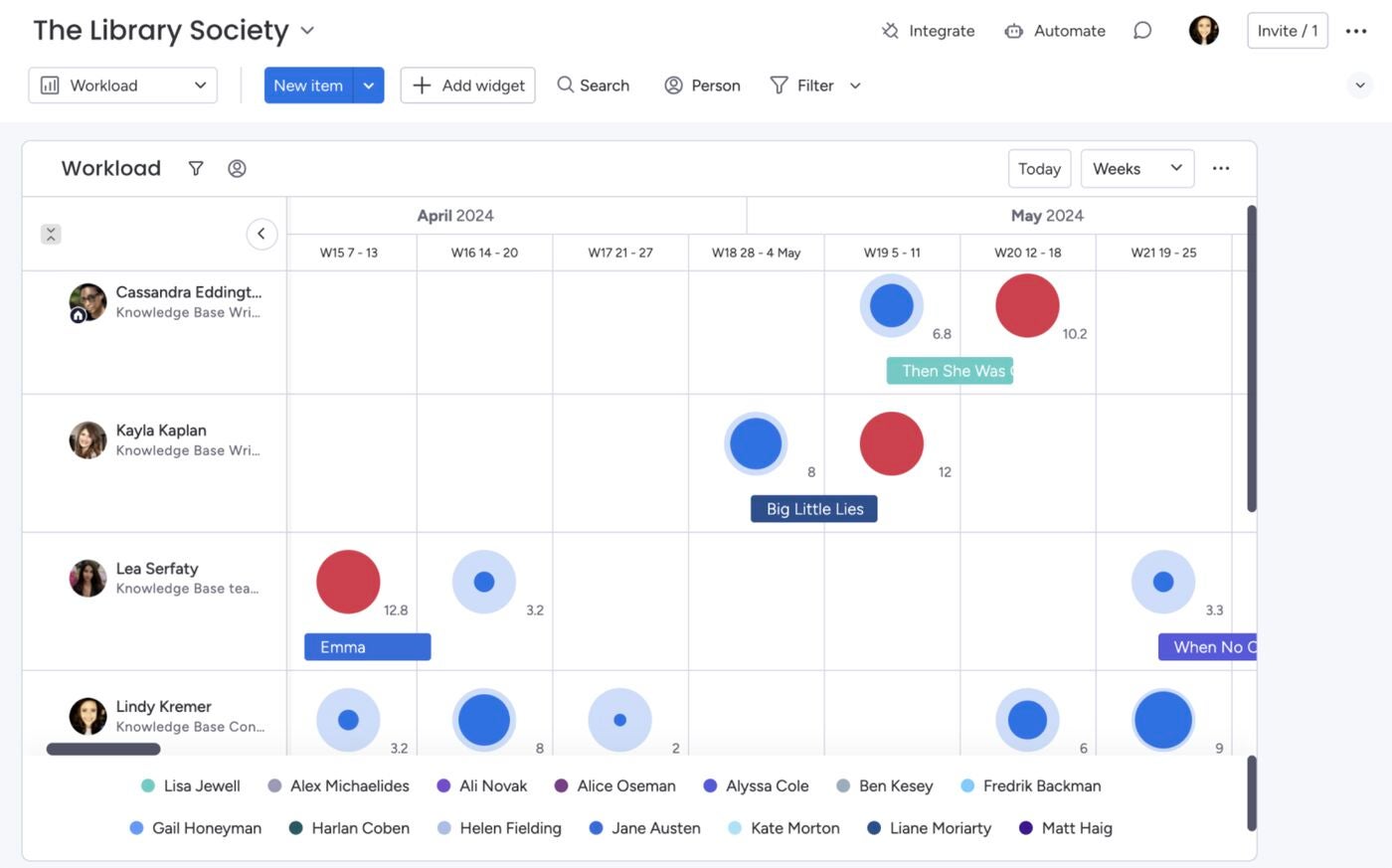
Workflows and automations
Both monday.com and Jira come with a no-code automation builder that makes it easy to create automatic workflows in minutes. All I had to do was select an event trigger, add necessary conditions and choose the action, then turn on the automation. In addition to creating my own automations from scratch, I could also browse either platform’s library of automation templates to get started even faster.
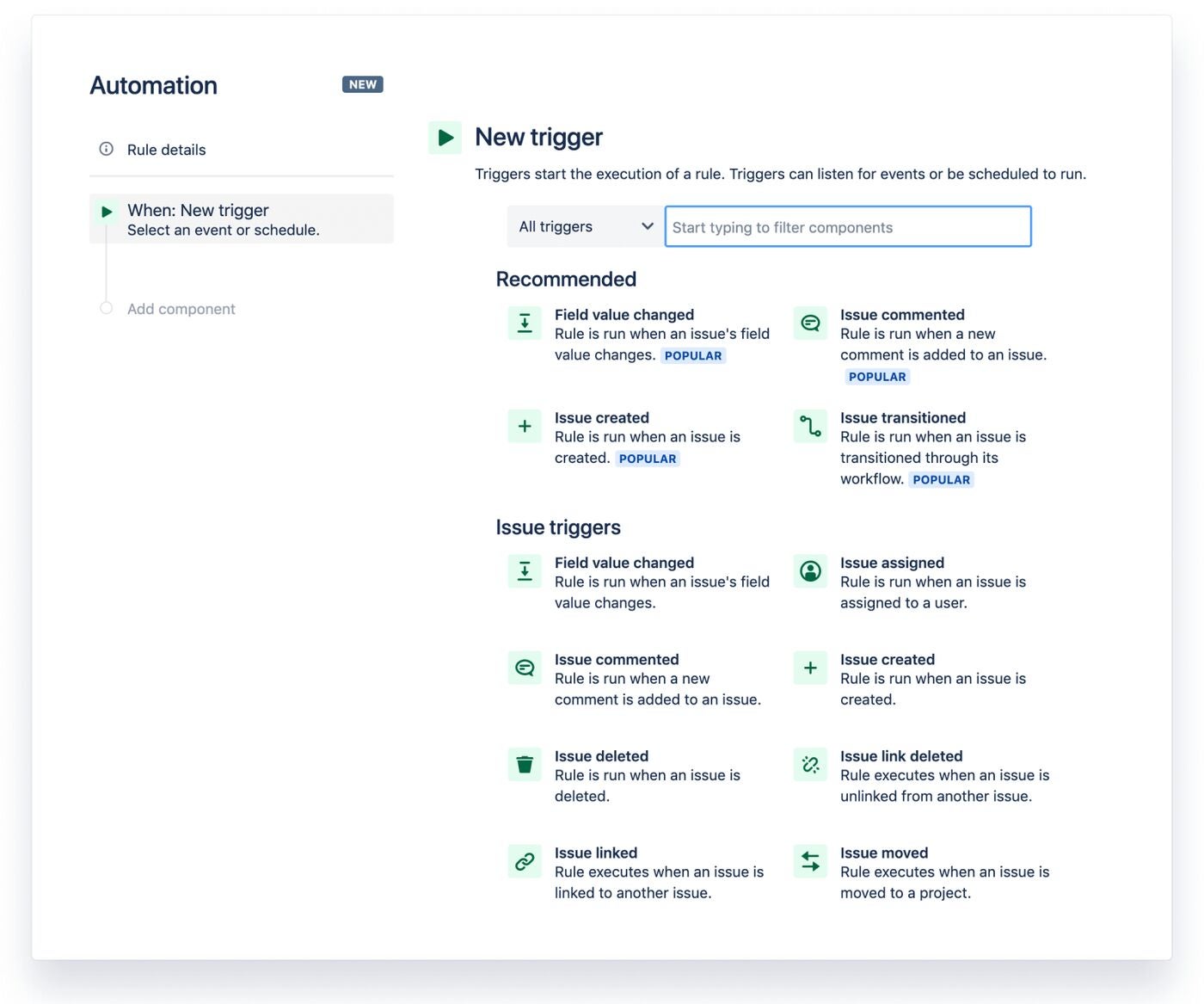
Both platforms also offer a certain number of automations each month, but the limits are different for monday.com and Jira. monday.com doesn’t even support automations on the Free or Basic plans. The Standard plan gets 250 automations per month, the Pro plan gets 25,000 automations per month, and the Enterprise plan gets 250,000 automations per month.
Meanwhile, Jira offers automations on all plans, even the free one, which gets 100 automations per month. The Standard plan gets 1,700 automations per month, the Premium plan gets 1,000 automations per month per person, and the Enterprise plan gets unlimited automations.
Integrations
Both monday.com and Jira offer a very robust selection of integrations. monday.com offers more than 200 native pre-built integrations to choose from, and you can also connect monday.com to more than 1,000 apps via Zapier. As for Jira, the Atlassian Marketplace features more than 3,000 apps to choose from, almost guaranteeing that you’ll find the integrations that you need. However, I always recommend double-checking either platform if you have a very specific or niche integration you’re looking for.
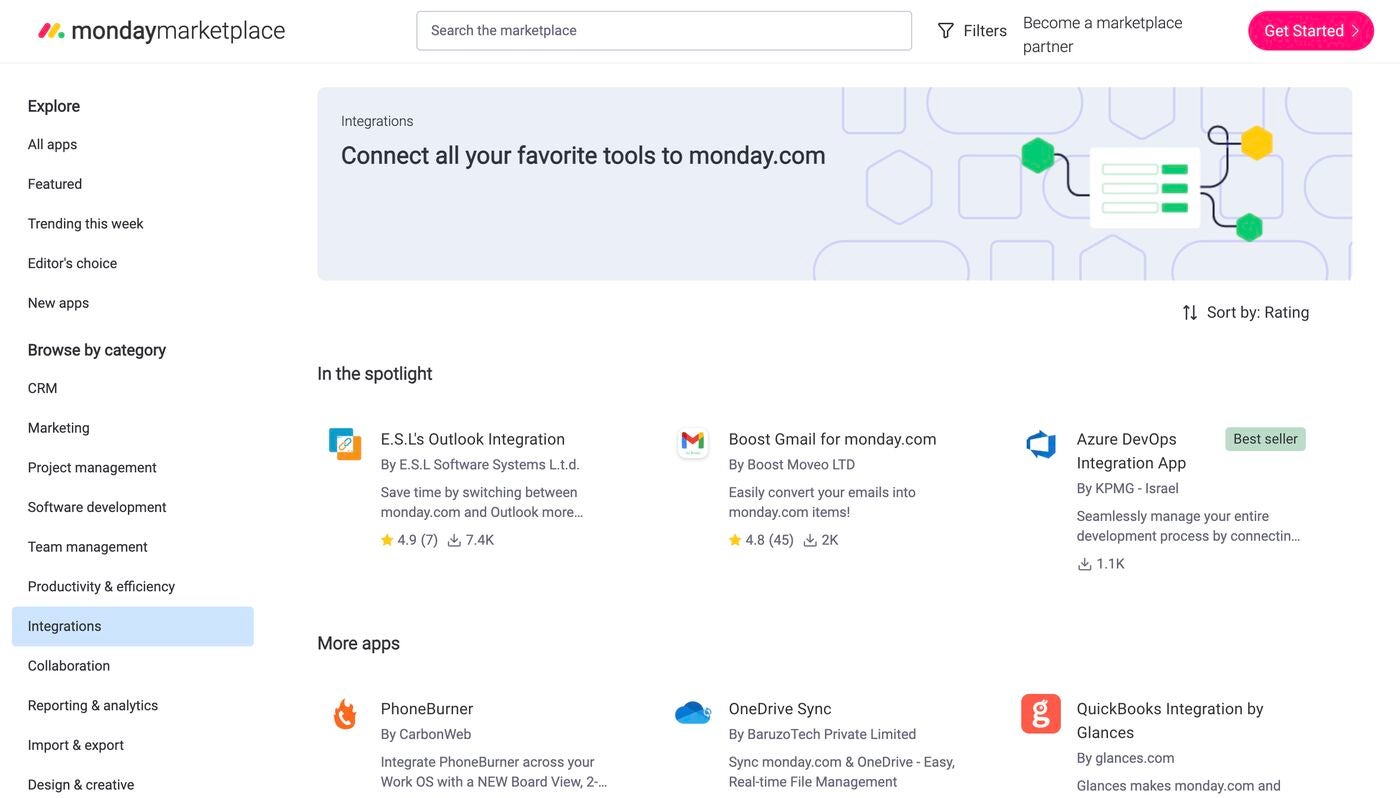
Security
monday.com and Jira are both compliant with GDPR, CCPA and other data privacy regulations, so either one will likely suffice for most companies’ needs. However, if you need more advanced security protocols than the usual offerings, then I suggest looking more closely at Jira. That’s because Jira offers higher-level, enterprise-grade security solutions and provides better administration and provisioning through Atlassian Access, an optional paid add-on. monday.com doesn’t offer a similar security add-on.
monday.com pros and cons
Pros of monday.com
- More project views to choose from than Jira.
- Dedicated workload management view.
- Friendly, colorful interface and lower learning curve.
- Many customization options to choose from.
Cons of monday.com
- Free plan limited to only two users.
- Must upgrade to Standard plan to get automations.
- No advanced security add-on.
Jira pros and cons
Pros of Jira
- Free plan more generous than monday.com’s.
- Automations available on all plans.
- 3,000+ app integrations to choose from.
- Optional security add-on to enhance data protection.
Cons of Jira
- No workload management view.
- Fewer project views than monday.com.
- More technical to learn.
Should your organization use monday.com or Jira?
monday.com and Jira are both excellent project management platforms, but their slightly different feature sets mean they cater to slightly different use cases. Since both platforms offer forever free accounts as well as free trials, I recommend extensively testing them both before committing to a paid plan.
Use monday.com if:
- You need more project views to choose from.
- You want a dedicated workload management view.
- You’re okay with lower limits on the number of automations per month.
- You are a small business and need a friendly platform with a lower learning curve.
Use Jira if:
- You need more automations.
- You want more app integrations to choose from.
- You want a more advanced security add-on.
- You are already using other Atlassian products.
FAQ
Is Jira or monday better?
Whether Jira or monday is better depends on your team’s specific needs and types of projects. Jira is a better choice for software development teams that need project management and issue tracking software, while monday.com is a great option for teams of all kinds that are looking for easy-to-use project management.
Does monday connect to Jira?
Yes, monday offers a native integration with Jira. Once you connect the two platforms, they will sync information with each other without the need for third-party middleware like Zapier. This means that your software development team can keep using Jira while the rest of your company works on monday.com — all without missing a beat.
Review methodology
To compare monday.com vs. Jira, I signed up for free trial accounts in addition to consulting product documentation and user reviews. I considered factors such as pricing, user interface design, customer service and learning curve. I also weighed features such as project views, project templates, resource management, workflows, automations, integrations and security protocols.
